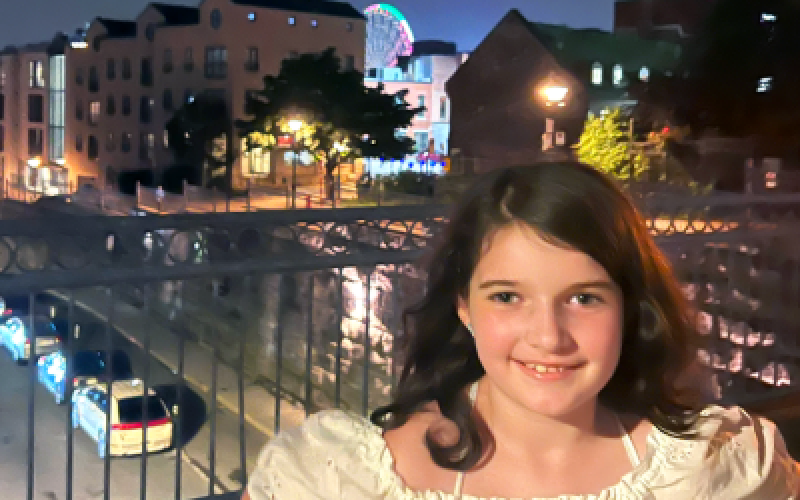By: Trish Adkins
After Brynn relapsed with a brain tumor and had her second brain surgery, her parents were told to enjoy the holidays. Brynn was just 3 years old. But Brynn’s mom, Jessica, remembered a trial parents were talking about in a Facebook group for ependymoma, the type of tumor that Brynn had.
“They just said to go and enjoy Christmas, but we were like, ‘Absolutely not,” said Jessica, Brynn’s mom. The trial she heard about was for an immunotherapy drug, led by Dr. Ted Johnson, an Alex’s Lemoande Stand Foundation-funded researcher. Brynn qualified and the family headed to Dr. Johnson’s clinic in Augusta, Georgia.
The trial worked. Today, Brynn is 10 years old and living her best, cancer-free life. And she hasn’t been the only success from Dr. Johnson’s trial. Lincoln, who is also now 10 years old, was treated on the same trial and is now cancer-free. And Abbie, who battled ganglioglioma during high school and her freshman year of college, is all grown-up.
Brain tumors are the deadliest of all childhood cancer types. When frontline treatment fails, the chance for survival lessens.
“One of the things that goes underappreciated is that there are not any approved or accepted standard treatments for relapsed pediatric brain tumors that would be expected to lead to a cure. At relapse, you're dealing with a terminal disease,” said Dr. Johnson. Standard treatments vary by brain tumor type but typically include surgery, chemotherapy and radiation.
“There just aren’t a lot of options for these kids,” said Dr. Johnson.
Dr. Johnson’s trial is more than an option, it can also be a cure. What makes this treatment different than chemotherapy or radiation is that it uses an immunotherapy drug called Indoximod in combination with chemotherapy.
Indoximod works to reverse the mechanisms that cancer tumors use to hide from the immune system. The chemotherapy damages the tumor, killing some of its cells, which in turn triggers an immune response.
The treatment is given via pill; once a month at the clinic in Georgia. It can come with side effects—like inflammation from the body’s immune system, low blood counts, and GI discomfort from the chemotherapy. But for the most part, kids on the trial seem to be able to continue in treatment and in their regular day-to-day lives. But, traveling to Augusta, Georgia can present a challenge for families. This is where ALSF has also been able to help, through the Travel For Care Program, which provides financial support and coverage of travel expenses to families. Parents can request support through their hospital social worker.
“I would say that probably 90 plus percent of our patients, benefit from that program, and wouldn't be able to travel for care if that wasn't an option for them,” said Dr. Johnson.
Kids find Ted’s trial in a variety of ways—through their home oncology hospitals and often, through a variety of parent Facebook groups. He’s enrolled kids ages 2 to 25, with all different types of brain tumors. Not every child responds to the treatment and among those who do, the treatment doesn’t always provide the cure. But what it does provide is time.
For Dr. Johnson, the next steps are continuing the trials, working to secure FDA approval for indoximod as a treatment for pediatric brain cancers, and continuing to give families facing brain tumors, hope.
“I got into research to make the world a better place for the kids that I treat,” said Dr. Johnson.



